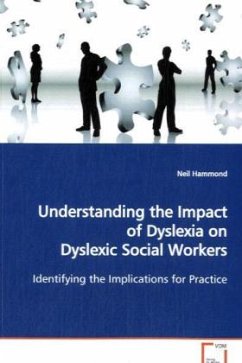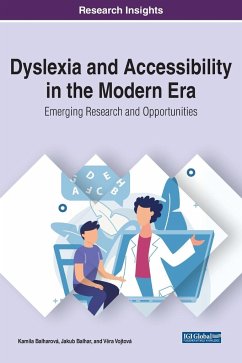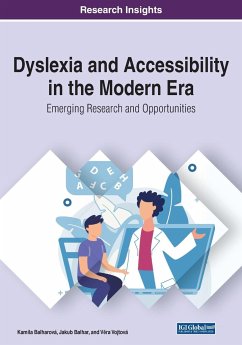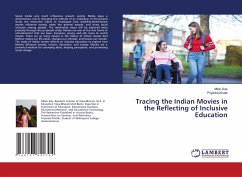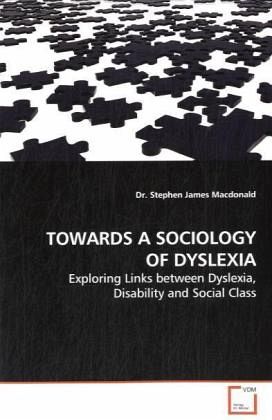
TOWARDS A SOCIOLOGY OF DYSLEXIA
Exploring Links between Dyslexia, Disability and Social Class
Versandkostenfrei!
Versandfertig in 6-10 Tagen
52,99 €
inkl. MwSt.

PAYBACK Punkte
26 °P sammeln!
The aim of this book is to establish a sociological understanding of dyslexia within adulthood. The research explores the effects dyslexia has on the lives of individuals within an educational and employment context. A feature of the study is that it draws from literature within the social model of disability rather than employing the psycho-educational approach that dominates contemporary research. The study has placed dyslexia within the field of disability studies in an attempt to understand how this syndrome can be interpreted through the concept of disabling barriers. In order to explore ...
The aim of this book is to establish a sociological
understanding of dyslexia within adulthood. The
research explores the effects dyslexia has on the
lives of individuals within an educational and
employment context. A feature of the study is that
it draws from literature within the social model of
disability rather than employing the psycho-
educational approach that dominates contemporary
research. The study has placed dyslexia within the
field of disability studies in an attempt to
understand how this syndrome can be interpreted
through the concept of disabling barriers. In order
to explore dyslexia within the field of disability
studies the book employs a biographical narrative
approach. The book discusses the importance of
identifying and supporting people with dyslexia
within education and employment. By acknowledging
that dyslexia is affected by issues of socio-
economic status, the research has broadened the
debate in relation to labelling individuals within
education. The study has developed a pro-labelling
approach based on evidence from the social and
educational perspectives in order to represent the
voices of participants within this study.
understanding of dyslexia within adulthood. The
research explores the effects dyslexia has on the
lives of individuals within an educational and
employment context. A feature of the study is that
it draws from literature within the social model of
disability rather than employing the psycho-
educational approach that dominates contemporary
research. The study has placed dyslexia within the
field of disability studies in an attempt to
understand how this syndrome can be interpreted
through the concept of disabling barriers. In order
to explore dyslexia within the field of disability
studies the book employs a biographical narrative
approach. The book discusses the importance of
identifying and supporting people with dyslexia
within education and employment. By acknowledging
that dyslexia is affected by issues of socio-
economic status, the research has broadened the
debate in relation to labelling individuals within
education. The study has developed a pro-labelling
approach based on evidence from the social and
educational perspectives in order to represent the
voices of participants within this study.



